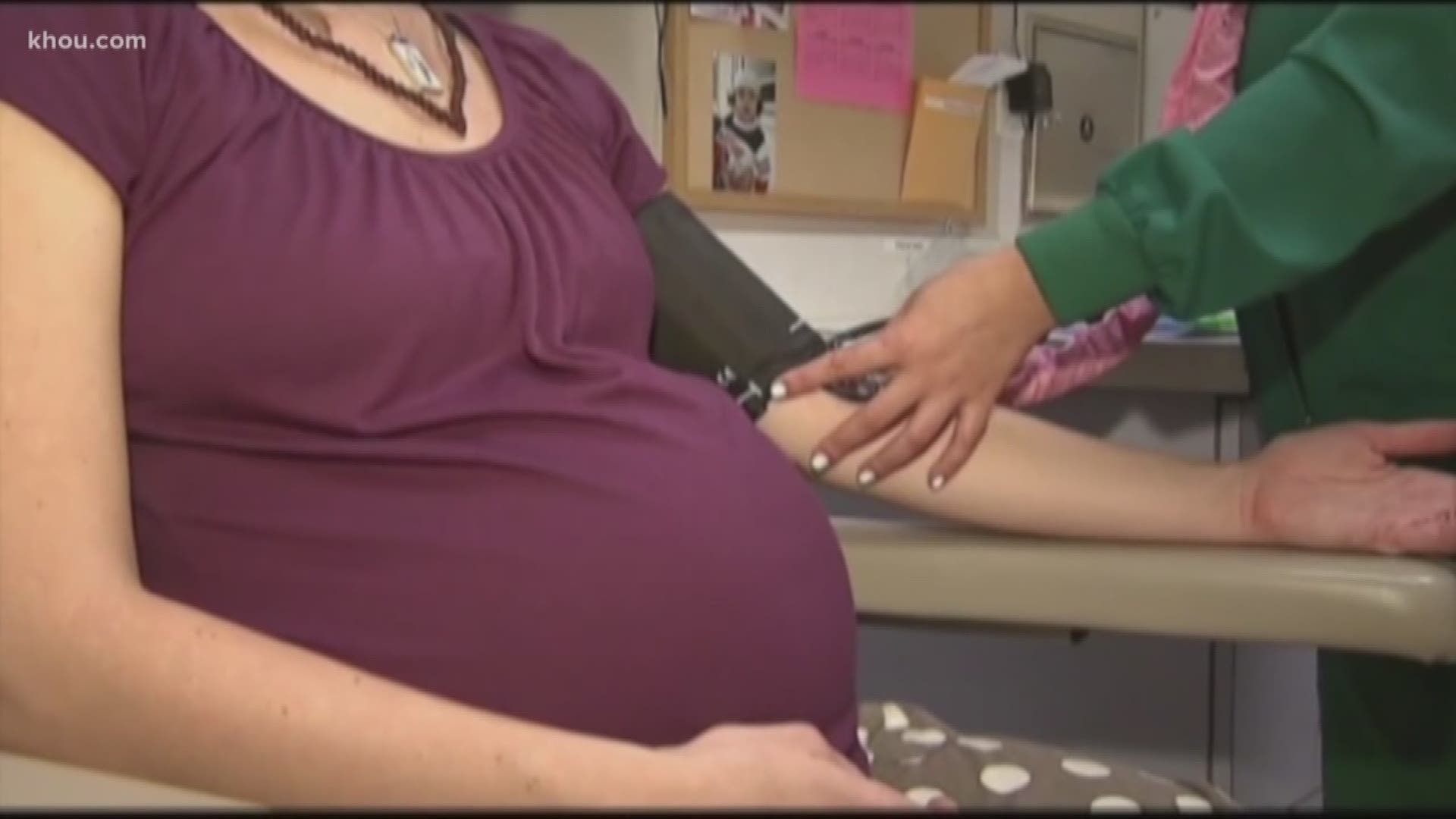HOUSTON — It is one of the biggest moments in a family’s life, but now some women in New York are having to deliver their babies without a partner present.
Amid the COVID-19 pandemic, Mt. Sinai Health System and New York-Presbyterian have both barred all visitors from the delivery room. Could hospitals in the Houston area make a similar decision?
“It’s just a scary time to become pregnant or be pregnant,” said Dr. Megan Pallister, an OBGYN with Kelsey-Seybold, “and I’m right there with them.”
Dr. Pallister also happens to be pregnant. Kelsey-Seybold is one of many area hospitals that already made changes to the way they operate.
“We’ve been screening from the get-go,” Pallister said. “Now there are no visitors allowed...In labor and delivery, you are allowed one visitor in. That visitor cannot be switched out. You cannot have your partner for labor and then have your mom come in for the baby afterwards. It’s one person through and through.”
Pallister explained in her OBGYN practice, about 50 percent of their appointments are now done through telemedicine to limit risk to patients and medical professionals.
Research on how COVID-19 affects pregnant women and their babies is limited. Initial studies out of China show they don’t seem to be impacted much differently than anyone else, although Pallister cautions it’s just too soon to say.
However, COVID-19 can be dangerous for anyone, which is why Kelsey-Seybold and other Houston area hospitals have made changes to how they operate. So far, none has made the drastic call the two chains in New York City have made.
“I think it’s for their safety. I think it’s for the partner safety. I think it’s for the safety of everyone in the hospital. But it’s (labor and delivery) just something that no one desires to experience on their own," Pallister said.
There has been a huge pushback In New York with hundreds of thousands signing a petition hoping Mt. Sinai and NewYork-Presbyterian reverse their decision.
Could that same decision one day be made in Texas?
“I get chills thinking about that, if that is what we come to, if it comes down to that," Pallisters said. "I can’t say that it’s not going to because every day you to see these numbers climbing. Thankfully we are not like New York at this point, and hopefully we never get to that point, but I understand why they are doing that.”
Coronavirus symptoms
The symptoms of coronavirus can be similar to the flu or a bad cold. Symptoms include a fever, cough and shortness of breath, according to the Centers for Disease Control.
Most healthy people will have mild symptoms. A study of more than 72,000 patients by the Centers for Disease Control in China showed 80 percent of the cases there were mild.
But infections can cause pneumonia, severe acute respiratory syndrome, kidney failure and even death, according to the World Health Organization. Older people with underlying health conditions are most at risk.
The CDC believes symptoms may appear anywhere from two to 14 days after being exposed.
Human coronaviruses are usually spread through...
- The air by coughing or sneezing
- Close personal contact, such as touching or shaking hands
- Touching an object or surface with the virus on it, then touching your mouth, nose or eyes before washing your hands.
Help stop the spread of coronavirus
- Stay home when you are sick.
- Eat and sleep separately from your family members
- Use different utensils and dishes
- Cover your cough or sneeze with your arm, not your hand.
- If you use a tissue, throw it in the trash.
Lower your risk
- Wash your hands often with soap and water for at least 20 seconds. If soap and water are not available, use an alcohol-based hand sanitizer.
- Avoid touching your eyes, nose, and mouth with unwashed hands.
- Avoid close contact with people who are sick.
- Clean and disinfect frequently touched objects and surfaces.
- If you are 60 or over and have an underlying health condition such as cardiovascular disease, diabetes or respiratory illnesses like asthma or COPD, the World Health Organization advises you to try to avoid crowds or places where you might interact with people who are sick.
Get complete coverage of the coronavirus by texting 'FACTS' to 713-526-1111.

